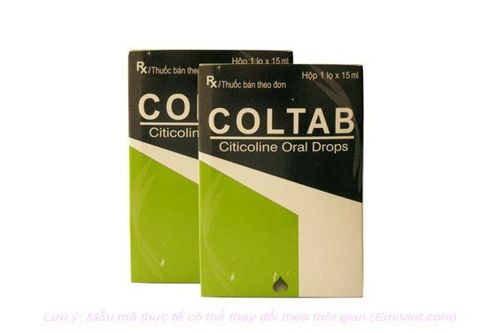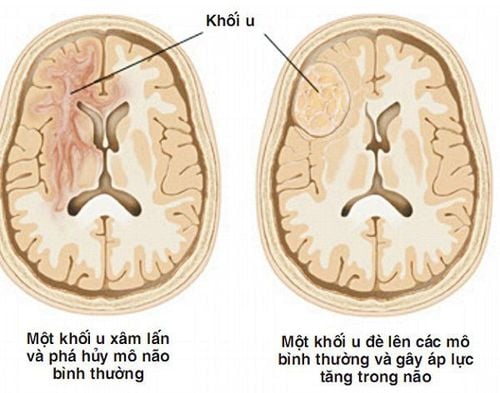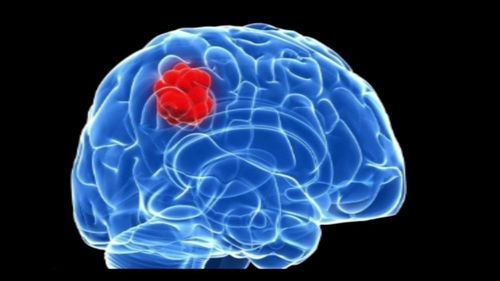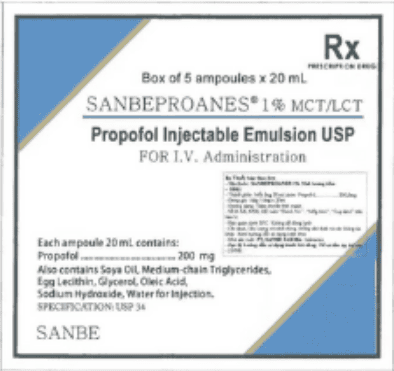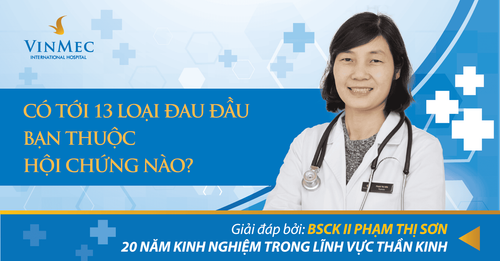This is an automatically translated article.
Cerebral edema is an abnormal accumulation of water and fluid in the cellular or extracellular areas of the brain, resulting in an increase in the total volume of the brain. Cerebral edema in patients with intracranial tumours is fluid leakage into the extracellular space due to disruption of the blood-brain barrier. This is a dangerous condition and the patient should be treated promptly.1. Principles of treatment of cerebral edema caused by intracranial tumors
The first principle should be treated in steps, starting from the simple (less complications) and then moving to more complex measures. Medical treatment is mainly aimed at controlling the patient's vital signs and treating raised intracranial pressure. Find ways to treat the cause if possible (surgery, radiation, chemotherapy).2. How to treat cerebral edema due to intracranial tumor?
It is necessary to early detect cerebral edema due to intracranial tumors based on clinical signs and cranial magnetic resonance, immediately take steps such as:Put the patient in the correct position: Head 30 degrees or let the patient Lower the head if there are signs of brain collapse, make sure the patient has a clear airway. In case the patient is in a coma, it is necessary to intubate or open the trachea for artificial ventilation. Provide enough oxygen, relieve pain and sedation if the patient is excited or convulsive. Arterial blood pressure control: If blood pressure is low (systolic blood pressure <90 mmHg) isotonic fluids (0.9% NaCl or ringer lactate) and vasopressors (dopamine 200 mg starting dose 5 μg/kg/min) should be given. or noradrenaline 1mg starting dose 0.1μg/kg/min, continuous intravenous infusion, adjusted according to blood pressure), if hypertension, need to combine antihypertensive drugs. Using drugs that increase osmotic pressure: Mannitol or osmofundin 20-25%, intravenous infusion 1-1.5g/kg/6 hours (200-300ml), rapid intravenous infusion. Or fast intravenous injection of 0.25g/kg, every 3-4 hours. The purpose is to cause osmotic diuresis, pulling water out of the brain parenchyma to reduce cerebral edema (effective after 45 minutes and lasting 4-6 hours). May be combined with diuretics (Lasix 20mg intravenously) to increase the effect of mannitol.
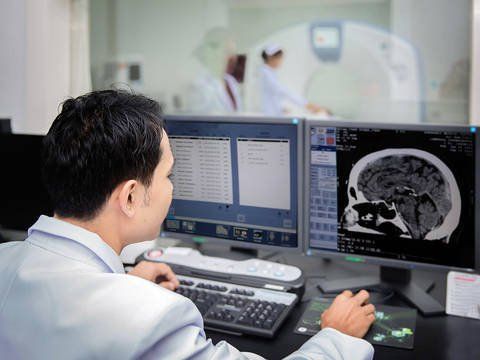
Cần phát hiện sớm tình trạng phù não do khối u nội sọ dựa vào các dấu hiệu lâm sàng và cộng hưởng từ sọ não
Corticosteroid therapy: Dexamethasone 8mg IV or IM, then 4mg every 6 hours. Can give synacthen 1mg, 1 ampoule intramuscularly. In case of cerebral edema after radiation therapy, radiosurgery: treat with corticosteroids at the same dose as above, use vascular antibiotics when steroid therapy does not respond such as: Bevacizumab 5mg/kg every 2 weeks or 7.5mg/kg every 3 the week. Limit fluid intake (10-15ml/kg/24 hours), and ensure that the patient is not hyponatremic. If volume overload is present: furosemide 40 mg orally, or 20 mg IV tube. Correction of electrolyte disturbances: If hyponatremia is present: hypertonic sodium solution (3% or 10%), rapid intravenous infusion over 20 minutes or maintenance infusion. Correction of hypothermia: hypothermia if fever is present: paracetamol 0.5g tablets orally 2-4 tablets/day if temperature is >38.50C, or perfalgan 1g, IV infusion every 4 hours to reduce cerebral metabolism and oxygen demand. Anti-epileptic: Diazepam 10mg intravenously or intramuscularly, depakin, tegretol... In case of severe cerebral edema, which can be life-threatening: due to incarceration of the cerebellar amygdala, it is necessary to conduct endotracheal intubation to prevent seizures. ensure optimal ventilation and blood oxygenation, ensure PCO2 in the range of 30-35mmHg, PAO2 in the range of 60-90mmHg (SPO2>90%) to reduce cranial pressure. If the above measures are not effective, the increase in intracranial pressure is still severe and dangerous. Thiopental can be administered intravenously at a dose of 4 mg/kg, followed by a maintenance intravenous infusion of 2 mg/kg/hour. The patient must be mechanically ventilated while taking thiopental. Intracranial pressure measurement: Indicated by a neurologist to help measure Intracranial Pressure (ICP) for diagnosis, medical treatment and early detection of cases that do not respond to treatment Medical treatment, need surgery to decompress the brain. The doctor will appoint surgery when ICP > 20cm H2O that has previously been treated with aggressive medical therapy. In case the patient is in a coma: Intubation, resuscitation, sedation, mechanical ventilation are required.
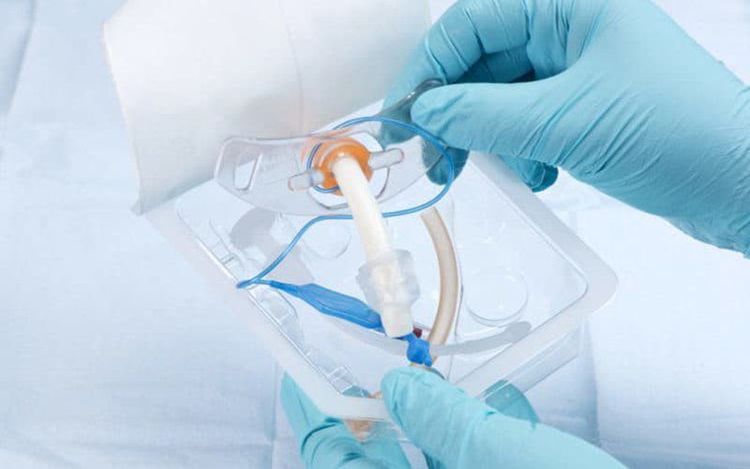
Cần đặt nội khí quản trong trường hợp bệnh nhân hôn mê
Surgery: Depending on each patient, methods such as: emergency CSF drainage if there is blockage cerebrospinal fluid circulation (temporary cerebrospinal fluid drainage through the skin or permanent ventriculostomy), or decompression craniotomy, surgery to remove brain tumors... Radiation therapy: after edema stabilized brain for the purpose of reducing tumor volume. Current radiotherapy techniques that can be applied include accelerated radiotherapy, radiosurgery (rotating gamma knife, gamma knife, CyberKnife) depending on specific cases. Combination of systemic chemotherapy to treat the cause: germ cell tumor, trophoblastic cancer with brain metastases, brain lymphoma... In fact, brain edema can be diagnosed accurately as soon as the symptoms are detected. symptoms by examining and combining other modern subclinical diagnostic methods such as: Physical examination of the head and neck, neurological examination, CT or MRI of the brain, blood tests...
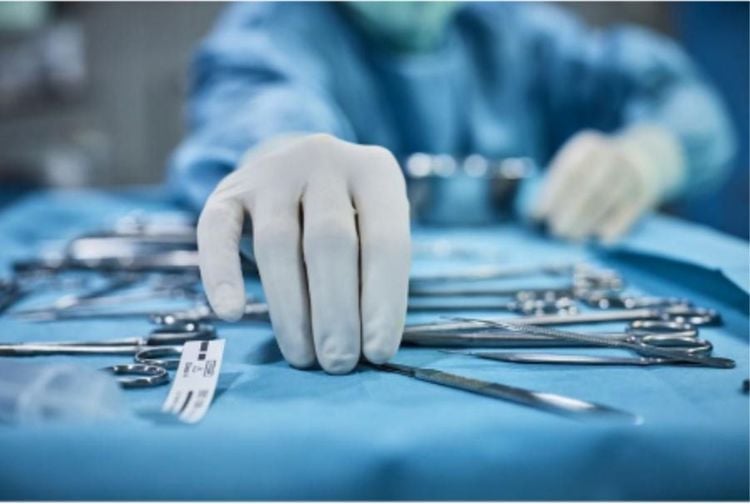
Ngoài các biện pháp cơ bản để đảm bảo chức năng sống và chống phù não như trên thì cần tiến hành phẫu thuật
In order to improve the quality of examination and treatment, the hospital has actively equipped with a full range of modern equipment and machines such as: G.E 3.0 MRI (MRI) machine, CT SCAN Toshiba 640 slices, angiography machine brain, MRA and CTA... The application of modern machinery system helps doctors easily detect, diagnose diseases, plan treatment thanks to the clear and detailed images obtained. Along with that is a team of highly skilled doctors with many years of experience. Therefore, customers can feel secure when using medical services at Vinmec.
Please dial HOTLINE for more information or register for an appointment HERE. Download MyVinmec app to make appointments faster and to manage your bookings easily.




